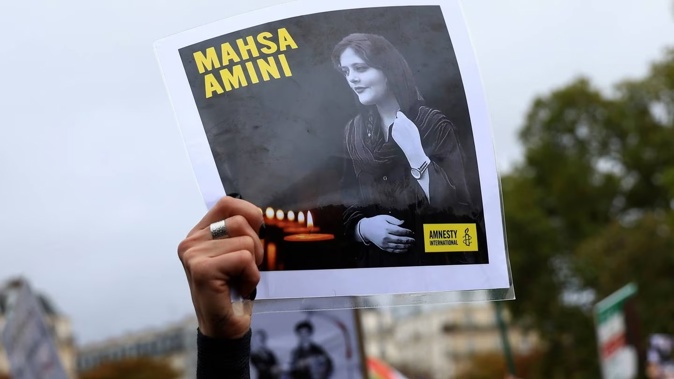
Iranian film stars, sports personalities and celebrities have been banned from leaving the country and had their bank accounts frozen and wages cut, according to leaked documents that reveal the depth of the regime’s crackdown.
Dozens of famous Iranians have been penalised for supporting the women’s rights protests that have taken place since last year, secret documents seen by the Daily Telegraph show, with punishing sanctions including “disconnecting their communication”.
The government list includes stars of sport, stage and screen, and football coaches, all part of a mass crackdown on anyone showing support for the uprising that began last September.
The documents state the punishments are a reaction to what the regime calls “instigating further riots”. It says the measures come “with the least cost and the most benefit for containing the riots” and are drawn up with the “principle of enlightenment”.
The leaks shine a light on the extent of the crackdown and hint at the fear in the regime about popular protests forcing regime change. The documents also give an unprecedented glimpse into the mechanics of the crackdown.
The names include award-winning men and women of Iran’s silver screen elite such as actor Atila Pesyani, singer and actor Hamid Behdad and actress Elnaz Shakerdoost, all regulars at the country’s annual Fajr International Film Festival. Four weeks ago, Behdad posted: “I am sure that this year we will taste the colour of freedom.”
/cloudfront-ap-southeast-2.images.arcpublishing.com/nzme/RRUUPEY7BBGCFEDKQ43TQDIX6M.jpeg)
People in Iran block an intersection during a protest on October 27 last year to mark 40 days since the death in custody of 22-year-old Mahsa Amini. Photo / AP
Rasoul Khadem, a former Olympic wrestler who claimed a bronze medal in the 1992 Olympics and gold in 1996, has also been listed, though remains defiant, evading his communications ban. This week, he posted on Instagram that “the price of food items and essentials of people’s lives is getting more expensive every day and every week”.
He said: “Sanctions and inflation are for the people of poverty, poverty and misery. For the people of gold and force [the rich and powerful], it is all blessings and wealth.” In another, he wrote: “Lying of officials is not a crime?!”
Former national team footballer Javad Kazemian, who played in the 2006 World Cup, has also been penalised, while Persepolis FC midfielder Milad Sarlak has been handed a 20 per cent salary cut. All are banned from leaving the country.
The Iranian national team courted controversy during the Qatar World Cup when they refused to sing the national anthem in protest against the crackdowns on protesters, in which more than 500 civilians were killed.
Reza Ramenzapour, head coach of the national chess team - which saw one of its top players, Sara Khadem, compete without a headscarf and forced into exile in Spain after an arrest warrant was issued against her - has also been given extra “limitations” in addition to his frozen bank account, communications cuts and travel ban.
The orders were given by the committee for “special personalities”, which comes under the Council of Homeland Security, one of many committees battling the rebellion against the regime, which has been in place since the revolution of 1979. The regime hopes to avoid what it calls the “consolidation and solidarity of one group” sympathising with the protests.
The memorandum states that the organisations charged with enforcing the sanctions “have to act as soon as possible ... in order to make these personalities follow the system’s lines so the results will be seen on the ground”.
/cloudfront-ap-southeast-2.images.arcpublishing.com/nzme/VKI6JL6NQQTPVJQMF2DPMIMU64.jpg)
A portrait of Mahsa Amini is held during a rally. Photo / AP
The protests were triggered by the death in custody of 22-year-old Kurd Mahsa Amini, arrested in Tehran for the inappropriate wearing of her mandatory Islamic headscarf, the hijab, and have since spread nationwide.
Mardo Soghom, an Iranian journalist, said artists had a special status that risked undermining efforts by censors. “Artists are seen more as the intelligentsia rather than simply actors, so their public position on issues can have a significant impact on society,” he said.
- Melanie Swan, AP
Take your Radio, Podcasts and Music with you









